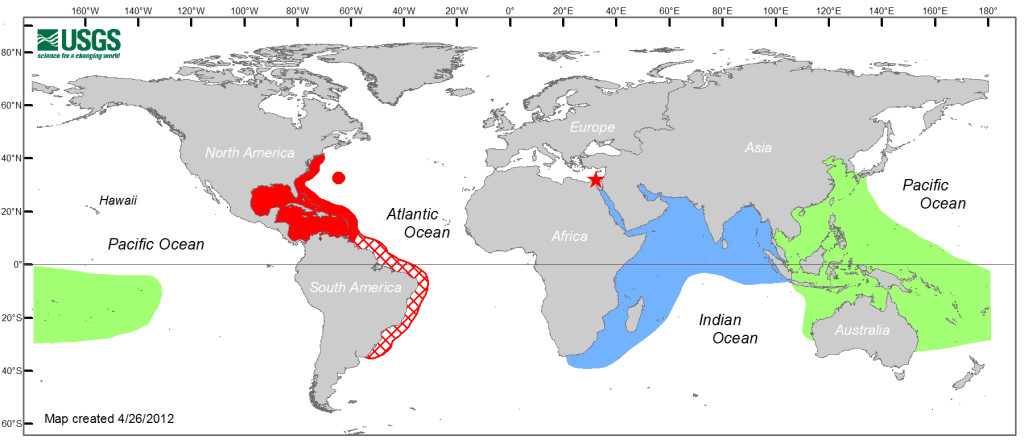Offgrid Preparation Video: Underwater Fishing with a Glock
Time for a pop quiz. Kudzu vines, Africanized “killer” bees, Burmese pythons, nutria, wild boar—what do these animals and plants have in common? Answer: they are all considered invasive species in the USA. This classification refers to plants, animals, or even fungi that have spread excessively resulting in damage to the environment.
Often, these species are introduced from foreign countries, and grow out of control due to favorable weather conditions or lack of natural predators. This throws the local food chain out of balance with disastrous consequences. Scientists and government organizations warn of the dangers of introducing invasive species, and they're the reason border checkpoints search for contraband that may harbor these pests.
On the eastern seaboard of the United States, the lionfish has become a notable invasive species. These brightly-striped and fringed fish may look graceful, but they're aggressive predators that can lay 30,000 eggs every four days and gobble up local salt water species. In addition, lionfish are covered in venomous spikes which can cause extreme pain, vomiting, difficulty breathing, and convulsions in humans. Obviously, this poses a serious threat to fishermen, swimmers, divers, and local marine environments.

The natural range of lionfish (blue/green) versus its invasive range (red). Grid shows predicted growth. Source:...

In Florida, the lionfish population has spiraled out of control so far that these fish are even resorting to cannibalism. So, Florida officials have encouraged divers to hunt lionfish and reduce their numbers. The fish can be speared, caught in hand-held nets, or hooked, and there is no recreational or commercial limit on lionfish. However, one Florida man has developed an even more creative solution to this pest problem: underwater fishing with a Glock.
Courtland Hunt documents his lionfish culling on his YouTube channel:
It's good to see that efforts were made to reduce damage to the reefs, by using lead-free ammunition, collecting spent brass, and only firing above sandy areas. Also, the fish don't go to waste, as lionfish flesh is edible (only the spines are venomous). That said, this looks like a fun way to help the local fish population in Florida.
 STAY SAFE: Download a Free copy of the OFFGRID Outbreak Issue
STAY SAFE: Download a Free copy of the OFFGRID Outbreak Issue
No Comments